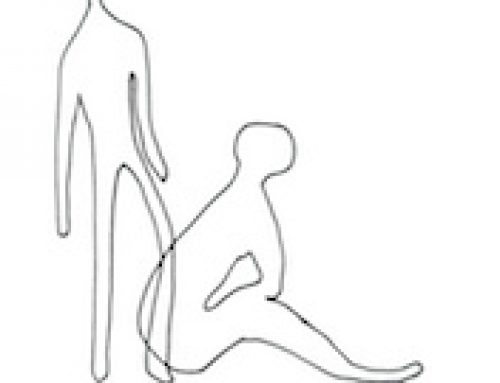 A Holistic Approach to Stress Management
A Holistic Approach to Stress Management
Stress itself is never the enemy; in fact we need a bit of ‘good stress’ (called eustress) to keep our fight/flight mechanism working properly. Plus stress challenges us to grow personally and spiritually. Problems only arise when we allow eustress to get out of balance and become distress.
Fight/flight mechanism
The early hunter experienced stress when a sabre-toothed tiger jumped in front of him. The fight/flight mechanism kicked in; he punched the tiger in the nose then run back to the cave. He grunted, howled and waved his arms about, letting his system express the drama/trauma. Then he returned to normal. In the animal kingdom, an antelope may be attacked by a lion and somehow escapes. It then jumps around, kicks, shakes and makes a variety of noises until the trauma is expressed and resolved.
Emotional stress
For humans, stressors are often subjective i.e. emotional. We are the only animal not to run from stress. It is not appropriate to run out of the office shaking and screaming whenever we come under a little stress at work. The result of emotional stress is a body pumped up with adrenalin and cortisol and no easy release-mechanism. Some people play football and gain release by aggressively tackling other players.
Protecting ourselves
We guard ourselves against the challenges of the day. We develop body armour which theoretically helps to reduce our response to stress. One boss reduced stress by slamming his fist on the desk. One day he hit the centre of his steering wheel of the car so strongly it set off the air bag.
The problem is that we have developed a habit of reacting to life’s challenges as a threat rather that as an opportunity. Further, we have created a conflict within the mind so that our reaction is often a result of this inner conflict.
Right and left brain conflict
On the one hand, we believe we should be able to cope; we convince ourselves we have the knowledge, skills and intelligence to effectively solve the situation – a right brained response. On the other hand our left brain feels overwhelmed, reactive and doubts our ability. This resultant internal conflict activates the fight/flight mechanism without a means of resolution. Eventually, we become trapped in either the right or left brain hemispheres as stress serves to sever the intercommunication between both.
Chemical reaction
Added to this, a stress response causes our body to burn up large quantities of Vitamin C, Potassium Phosphate and B Group vitamins (especially B5). If we have few of these nutrients in our bodies, the stress reactivity burns up the little reserve we have.
In order to cope with the adrenals overworking and becoming exhausted, most people turn to substances to help feel ok and able to cope. Tea, coffee, sugar, cigarettes, alcohol and harder prescription or illegal drugs are used. Hype reduces sleep, so alcohol or sleeping tablets are needed. In the morning, these people have no energy, so a “heart starter” coffee is used.
This approach burns out the adrenals. The pancreas is stressed as the blood sugar goes up and down all day. With the fluctuation in blood sugar comes anxiety, confusion, lack of concentration, phobias, mood swings, trembling, insomnia, aches, pain, withdrawal or paranoia to name a few.
As more drugs are used, the downward spiral of psychological and physiological dysfunction continues.
Solutions
We need to develop a management philosophy and accompanying strategies and to set realistic limits on what we can and cannot do.
Exercise is needed. Instead of that cup of coffee at lunchtime, a 10-15 minute walk will do wonders. Exercise burns up the excess adrenalin and cortisol and oxygenates the tissues; this then de-stresses the mind and body.
Once de-stressed, both hemispheres of the brain interact effectively. We come back to the challenge, creative, relaxed and energised. Daydreaming also helps.
We need balance in our lives. We have 24 hours in a day: 8 hours to work, 8 hours to sleep and 8 hours for recreation, where we re-create our selves.
We need hobbies, social contacts, vision, purpose, love, affection and above all TO NOT TAKE OURSELVES TOO SERIOUSLY.
We can minimise the damage and support the mind and body by using homeopathic remedies, herbs, vitamins, massage, spiritual healing, counselling and so on. However these are all still band-aids. We need a good philosophy of life, a means to express distressing feelings in a constructive way and the ability to see all life’s challenges as opportunities.
How we respond to life is always a choice.
Author: Life Member David Kliese
This article was first published in an AHHCA newsletter in February 2006.






Leave A Comment